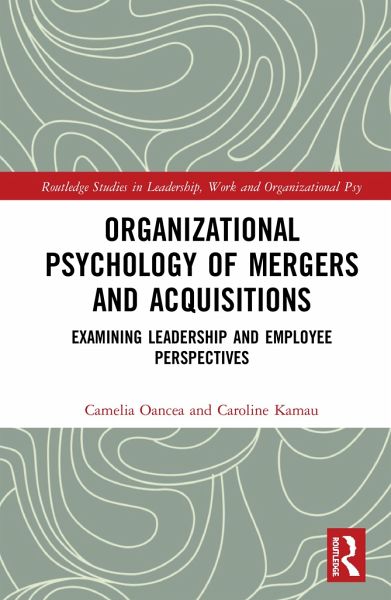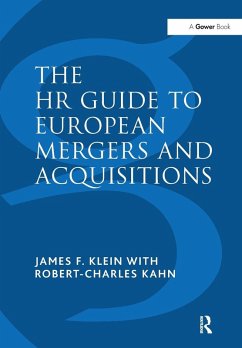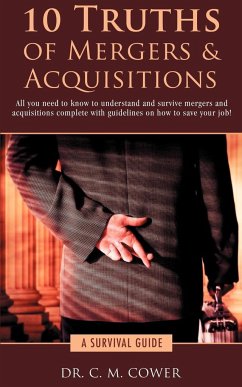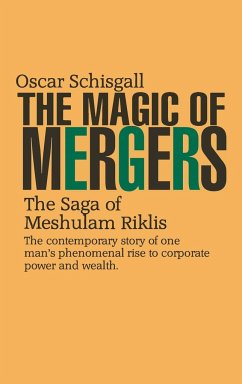
Organizational Psychology of Mergers and Acquisitions
Versandkostenfrei!
Versandfertig in 1-2 Wochen
168,99 €
inkl. MwSt.
Weitere Ausgaben:

PAYBACK Punkte
84 °P sammeln!
Organizational Psychology of Mergers and Acquisitions provides a comprehensive perspective that helps you understand, empathise and protect the wellbeing of employees who experience mergers and acquisitions.














